Hormones are the Most Powerful Compounds in Biology
There are many plagues in the world right now but I believe that one of the most sinister is that of hormone imbalance.
Why?
Because even small changes in your hormone levels can result in huge changes to how you are feeling.
And these changes can easily be dismissed or ignored (and they often are) by your doctor.
As a doctor, it’s easy to handwave away symptoms such as fatigue, joint pain, hair loss, and weight gain as a sign that you are getting older or provide some other excuse for their existence.
And, believe it or not, this happens commonly, especially among women!
There are many differences between men and women and one of those differences has to do with how small changes in hormone levels are perceived on a symptomatic level.
Women tend to have more tightly regulated hormone cycles (1) and levels compared to men (2), it’s just the way it is.
Men’s hormone levels can fluctuate hour to hour but are relatively stable when you look at them over a period of weeks to months.
Women, on the other hand, see significant changes day to day and even week to week.
This cyclical pattern is great because it allows for pregnancy and carrying a child but because the system is so regulated any small change can disrupt the balance and result in symptoms that YOU will feel.
This is because your hormones are the most powerful compounds in biology (3) and in your body.
And that’s exactly why we are talking about them. Today, you will learn:
- Why your hormones are so important for regulating how you feel
- Why small changes to your hormone levels can result in big symptoms
- Why you need to trust yourself and listen to your own body when it comes to your hormones
- Why doctors miss hormone imbalances and why they aren’t always the best option for treatment and therapies
- How hormone imbalances present in women, what these symptoms mean, and how to use your symptoms to figure out which hormone imbalances you are struggling with
Let’s jump in…
When it Comes to Your Body, Trust Yourself
Before we talk about the symptoms associated with hormone imbalance, I need to make one very important point.
And that is that you know your body better than anyone else.
Because hormone levels can fluctuate from person to person, day to day, week to week, month to month, and even due to stress, it can be hard to pinpoint what “normal” is for you.
This often results in mismanagement or neglect by providers because your lab tests may not reflect how you are feeling symptomatically.
In other words, what’s “abnormal” for you may actually be “normal” for other people or vice versa.
Having said that, one sure way to know if you are having problems is to listen to your own body and to your own intuition.
No one knows your body better than you!
You’ve lived your life in your body for years and decades, you know how you should feel during certain times of your cycle, you know what’s normal for you in regards to food cravings, and you know when something is off.
Don’t let someone try to convince you that you are “normal” when you know you aren’t.
I’ve found that women are especially insightful about their own bodies. When they think something is off they are usually right.
They aren’t right 100% of the time but, for the most part, if you feel something is wrong then something is probably wrong, it’s just a matter of finding it.
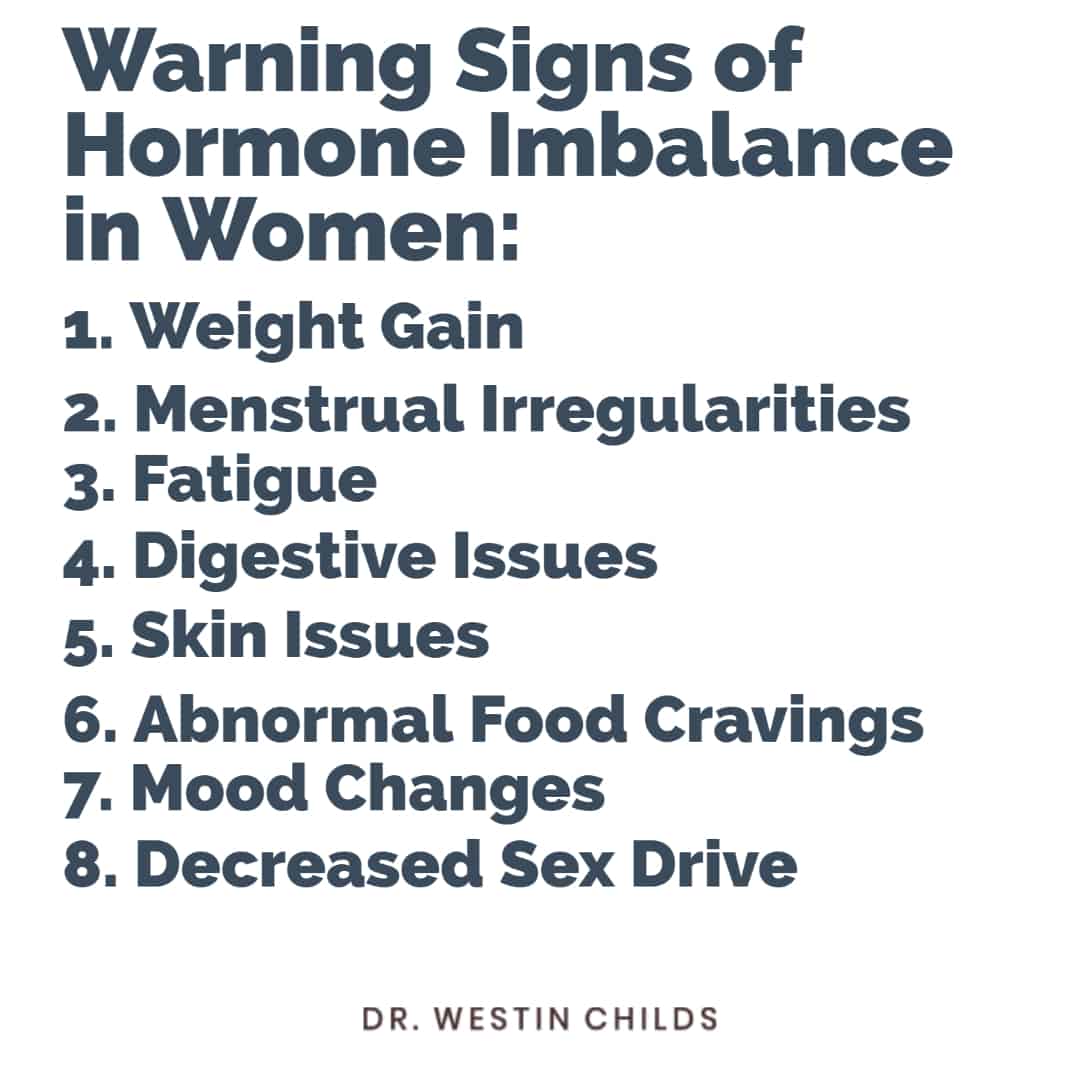
Secondly, you have to understand that most doctors are not great at treating hormone imbalances, at least not the hormone imbalances we are going to be discussing today.
There are some major hormone imbalances that you definitely want to bring up to your doctor, but we aren’t talking about those.
You can find out if your doctor is the right person to treat your hormones by assessing a few different things:
#1. If your doctor’s solution for fixing your hormones is to put you on birth control then you know you are looking in the wrong place.
Birth control is often wielded as a one size fits all solution for women with sex hormone issues and sometimes it works but for most people, there are often much better solutions out there.
Birth control pills work to mask or hide the problem but they don’t solve or treat the underlying issue.
Try to avoid doctors who use birth control as the solution to all hormone-related issues.
#2. If your doctor is dismissive or ignores your symptoms then you know you are in the wrong place.
Look for doctors who are empathetic and sympathetic to your symptoms.
Doctors that will are willing to order tests, look for solutions, and ones that are available to answer questions and willing to work with you.
Lastly, before we talk about symptoms, you should know that there are two major groups of hormone imbalances that you should be aware of.
The first group is conditions that are often not missed by your doctor and include a group of conditions that are more serious and potentially life-threatening.
These conditions include things like Addison’s disease (4), hyperthyroidism, thyroid storm, and serious complications from diabetes like DKA (5).
These hormone imbalances are serious but, luckily, are typically not missed by most doctors.
The second group is a more sinister group because it is often missed by doctors.
This group includes minor to moderate hormone imbalances that result in serious symptoms for women but are often ignored by doctors.
Conditions in this group include PCOS, hypothyroidism, Hashimoto’s thyroiditis, early insulin resistance, estrogen dominance syndromes, and even menopause or perimenopause.
THESE are the conditions that are associated with the symptoms we are going to be discussing today and these are the conditions that are most often ignored by doctors.
9 Signs of Hormone Imbalance in Women
As you look at these symptoms, keep in mind that you do not have to have ALL of them or even MOST of them to have a hormone imbalance.
They often do go together, that much is true, but it’s quite possible for you to only experience 1 or 2 of these symptoms and still have moderate issues with your hormones.
#1. Weight Gain (Including Fluid and Fat Mass)
The first, and probably most important symptom of hormone imbalance for women, is weight gain.
And as you think about weight gain, I want you to think about the two major types of weight gain that can be associated with hormone issues.
The first is the type of weight gain that you are probably well familiar with and this weight gain is associated with an increase in fat mass.
Women who experience an increase in fat mass will not only see the scale go up but they will also see their clothing size increase and may see changes such as increased skin or cellulite.
Certain types of hormone imbalances can result in an increase in fat cell size which is separate from another type of weight gain that can occur from hormone issues.
This type of weight gain is associated with fluid shifts or water weight (6).
Weight gain from water weight will definitely still increase your overall weight on the scale, and may even change how your clothes fit, but this type of weight gain is much preferred over an increase in true fat mass and true fat cell size.
Hormone imbalances that cause water weight gain can be treated more easily because that extra weight can often be eliminated through the kidneys (via your urine) if the underlying hormone imbalance is fixed.
Hormone conditions which result in an increase in the size of your fat cells are a little more tricky to treat and take more time.
Many different hormones can result in weight gain but you can use this guide to help you figure out which hormone imbalance you are probably dealing with:
- Gaining weight in your belly? This is probably a sign that you have an insulin issue or a cortisol problem.
- Gaining weight on the back of your arms? This is probably a sign that you have a problem with testosterone.
- Gaining weight in your butt or your thighs? This is probably a sign that you have an estrogen or progesterone problem.
- Gaining weight evening over your entire body? This is probably a sign that you have a problem with your thyroid.
- Gaining weight in the trunk of your body or on the back of your neck? This is probably a sign that you have a cortisol problem.
This guide isn’t always 100% accurate but it can definitely help direct you to your problem areas and may help you start down the right track.
These hormone imbalances are associated with a true increase in fat mass.
Changes to estrogen and progesterone, especially excess progesterone, may result in weight gain from water retention.
#2. Menstrual Irregularities (and Infertility)
As a woman, you should be aware that it is never normal to have any of the following symptoms (7):
- PMS or excessive symptoms associated with PMS
- Heavy flow or light flow
- Migraines or headaches associated with your cycle
- Cramping or pain with your cycle
- Fatigue or low energy during your cycle
- Irregular menstrual cycle or rapid menstrual cycle (cycles which occur longer than every 34 days or cycles which occur more frequently than every 22 days)
- Or any other abnormal sign or symptom that you experience around the time of your cycle
In fact, you can kind of use your symptoms during PMS as a barometer for how balanced your hormones are.
If you breeze through your cycle without issues then you can say with some degree of confidence that your estrogen and progesterone levels are well balanced.
If, on the other hand, you barely make it through with mood changes, pain, changes in your flow, or any other symptoms, then you can confidently assume that something is off.
I’ve lumped infertility into this section because the same hormones that help to regulate your cycle are the same hormones that are associated with ovulation.
Because of this, issues with estrogen and progesterone not only lead to hormone irregularities but also may lead to infertility or difficulty in getting pregnant.
For instance, an irregular menstrual cycle is often associated with an anovulatory cycle (8).
An anovulatory cycle is a way to describe a menstrual cycle that isn’t associated with ovulation.
In other words, a cycle that would be incapable of producing a pregnancy.
The three primary hormones involved in regulating your menstrual cycle include thyroid hormone, estrogen, and progesterone.
If you are having menstrual problems then look to these hormones first!
#3. Fatigue.
It is not normal for you to not have the energy to get up and go!
Fatigue is a tricky one, though, because so many things can cause fatigue.
Conditions such as common illnesses to not getting enough sleep and everything in between.
The fatigue I’m talking about here is the unexplained type of fatigue.
In other words, if you find that you have fatigue and you don’t have any clear answer as to why you are fatigued then it may be related to your hormones.
If you have fatigue with a clear answer, such as not sleeping enough each night, then the cause of your fatigue isn’t a mystery.
The type of fatigue caused by your hormones exists despite doing everything right.
It exists even if you are sleeping well, eating well, exercising regularly, and so on.
If you have fatigue despite doing everything right then that may be a sign that your hormones levels are impacting your energy levels in some way.
The hormones in charge of helping to regulate your energy include cortisol, thyroid hormone, testosterone, and even estrogen/progesterone to some extent.
In terms of which are most common, low energy problems most frequently stem from cortisol dysregulation as well as thyroid problems but the other hormones can and often do play minor to moderate roles as well.
You can check these hormones in your blood to try and figure out which one is causing your fatigue.
Another alternative is to just supplement with an adrenal support supplement if you know that you’ve been under a lot of stress or if you believe that stress/cortisol is playing a role in your fatigue.
This works for many people simply because stress and cortisol dysregulation drive the majority of fatigue-related hormone problems and these problems tend to be associated with other hormone imbalances such as thyroid problems.
If you prefer to be more precise in your treatment and supplementation then you can and definitely should check your serum levels of all hormones listed above.
#4. Digestive Issues (Pain, Cramping, Bloating, Constipation/Diarrhea)
This set of symptoms is less well known compared to some of the others we will be discussing but it is absolutely the case that hormone imbalances can and do impact your gut health.
As they impact your gut health they may trigger a range of symptoms including:
- Pain
- Cramping
- Bloating
- Constipation
- Diarrhea
- Excess gas
Like fatigue, gut problems can be tricky in that many other problems can contribute to gut-related issues.
In fact, I would say that other issues such as a poor diet probably contribute more to gut-related symptoms than hormone imbalances do.
Having said that, hormone disruption is still important and should be evaluated in anyone who is experiencing gut issues.
Two of the biggest hormones that impact your gut include the thyroid and stress/cortisol.
Low thyroid is notorious for resulting in constipation which can trigger overgrowth syndromes such as small intestinal bacterial overgrowth (9) and even fungal overgrowth.
These syndromes can then lead to all sorts of abdominal issues such as gas, bloating, acid reflux, and more.
Another big one is stress (10).
Stress frequently contributes to diarrhea and abdominal pain.
Think about the last time you were nervous, did you feel butterflies in your stomach? Did it feel like you were going to throw up? Did it feel like you needed to use the bathroom?
This is that hormone complex in action on your gut (11).
#5. Skin Issues (Acne, Rashes, Swelling)
Your skin is the biggest organ on your body and it isn’t exempt from being impacted by your hormones!
As a general rule, it’s often best to think about your skin as a proxy for what is happening on the INSIDE of your body.
Most people think about problems of the skin as issues related to things that come into contact with the skin from the outside.
The truth is that your skin is most impacted by things from the inside that is then seen externally.
Among the many things that can impact the health and quality of your skin include your hormones.
I’ve included some examples of skin problems that can be caused by hormone imbalances and which hormones are often responsible below:
- Acne – Usually caused by excess testosterone (12)
- Rashes – Usually related to thyroid problems
- Swelling – Usually related to thyroid or progesterone imbalances
- Loss of subcutaneous fat – Often related to decreased estrogen (13)
- Looking gaunt – Usually related to low estrogen/menopause
- Eyebrow hair loss – Often related to low thyroid
- Puffy eyes – Often related to low thyroid
- Nail changes – Often related to low thyroid
#6. Hunger or Abnormal Food Cravings
It is normal for you to have cravings for foods periodically but it is not normal for you to feel like you don’t have control over the foods that you want to put into your mouth.
There’s a fine balance that must be maintained between the hormones that regulate your appetite and their impact or sensitivity on your brain.
If you feel like you are experiencing constant cravings for foods, especially unhealthy foods, or if you feel like your cravings are out of control then that is a good sign that there is an imbalance in that system.
In healthy individuals, the stomach should ‘talk’ to the brain when it gets distended or filled up with food.
This crosstalk between your stomach and brain is really what drives most of your feelings of satiety (or feeling like you’ve eaten enough).
But hormone imbalances such as leptin resistance, excess cortisol, and excess ghrelin or ghrelin resistance (14) can impact that system and drive you to eat more than your body needs.
And this is actually quite common, especially among people who are trying to lose weight.
Dieting, for instance, is known to increase ghrelin (15).
You can imagine that shooting up your hunger hormone after you’ve lost a lot of weight is not ideal and is thought to be a reason why people regain weight after dieting.
Leptin works in a slightly different way.
Dieting results in resistance to the hormone leptin at the level of your brain.
This tricks your body into thinking you starving which promotes an aggressive appetite and occurs while you are already overweight.
Cortisol imbalances often result in cravings for sugary or salty foods and stem from excess stress, decreased sleep, and/or reliance upon caffeine.
If you are having issues in regulating or controlling your appetite then look at these 3 players.
#7. Sleep Disturbances or Insomnia
Sleep disturbances such as insomnia have many causes but hormone imbalances can be among them, especially if you are going through menopause or peri-menopause.
As estrogen levels fall in your body it can trigger symptoms such as hot flashes which are notorious for causing sleep disturbances.
This typically occurs in women around age 45 to 55 but can be triggered even earlier in some individuals.
Other hormones such as cortisol also play a role in helping you to not only fall asleep but stay asleep by interfering with your circadian rhythm.
#8. Mood Changes (with or without Migraines)
I’ve included migraines with mood changes simply because both are associated with the brain/head area.
It is definitely the case that certain hormones in your body can and do impact your mood (16).
If you find that you are more irritable than normal, if your mood is changing dramatically throughout the day, if you are having issues with depression, anxiety, or even panic attacks, then your hormones may be responsible.
Hormones that can lead to changes in your mood include:
- Low testosterone – Occurs with age but can be triggered by insulin resistance and weight gain
- Excess estrogen – Often associated with PCOS and weight gain
- Low progesterone
- High or low thyroid – Both hypothyroidism and hyperthyroidism may contribute
Hormones that can lead to migraines or headaches include:
- Changes to estrogen and progesterone
If you are experiencing headaches or migraines that tend to occur around your menstrual cycle then that is a good sign they are related to hormone imbalances.
#9. Decreased Sex Drive
It is certainly normal for sex drive and libido to vary quite dramatically from person to person.
This normal variance isn’t a problem.
But what I’m talking about here is a little bit different.
If you have noticed an abrupt CHANGE in your libido and sex drive that may indicate an underlying hormone imbalance.
And this can go both ways.
If you notice an increase in libido or a dramatic decrease in libido from whatever is normal for you, that is often an indication that something is off in your sex hormones.
Your sex hormones including estrogen, progesterone, and testosterone, all play together (17) to create your libido.
Of course, other factors play a role including sight, smell, and other stimuli, but these factors tend to be more important for the arousal state.
Your hormones set the framework and foundation which allow for your body to get aroused.
In other words, you could be seeing everything and smelling everything that would normally get you aroused but in the setting of hormone imbalance, your body won’t respond.
Decreased sex drive is actually a huge deal.
Regular sexual intercourse is associated with a huge amount of health benefits (18) that you really can’t get anywhere else ranging from benefits to your mood, your metabolism, and pretty much everything in between.
Treating issues related to libido have primarily been focused on men but there are still treatments available to women as well!
One of the most frequent hormones used to improve libido for women is low-dose testosterone but there are other topical medications that can be used to improve blood flow and heighten sexual arousal as well.
All three sex hormones play a role in regulating sex drive so it isn’t always as easy as taking some testosterone and calling it a day but that is usually the first place to start.
#10. Hair Loss in the Places you Want to Have Hair and Hair Growth in the Places you Don’t
Your hormones can cause several different types of hair-related problems including hair loss where you want to have hair and hair growth where you don’t.
There are many causes of hair loss in women but when it comes to your hormones thyroid, testosterone, and estrogen are the most important.
Both low and high thyroid can contribute to hair loss on the entire body including the eyebrows and the head.
Treating thyroid-related hair loss can be complicated and I have plenty of resources to help you solve that problem if you are suffering from it.
When it comes to testosterone, it can lead to both hair growth as well as hair loss.
Excess testosterone can cause something called hirsutism which results in dark hair growth on the chin, jawline, and upper lip.
On the flip side, high testosterone can also result in hair loss around the temples and at the hairline.
Estrogen usually results in hair loss and this hair loss typically occurs around the time of menopause and perimenopause as well as in the postpartum period when estrogen levels drop rapidly.
If you feel that your hair loss is related to your hormones then you will have to do some digging to figure out which hormone is the problem and if other factors may be contributing as well.
Your Next Steps
Okay, now for the important part:
What should you do if you are experiencing these symptoms?
The first place to start is always with a doctor.
The reason you want to see a doctor is simple:
You need to first ensure that you have a problem (by testing) and secondly, you need to make sure that your symptoms are not actually due to something more serious than a mild to moderate hormone imbalance.
Seeing a doctor first will ensure that you aren’t missing something big and allows you to get started on the right track.
As I mentioned previously, though, not just any doctor will do.
The best type of doctors to see for hormone imbalances include:
- Doctors that specialize in functional medicine
- Doctors that specialize in anti-aging medicine
- Doctors that specialize in integrative medicine
- Doctors that specialize in bio-identical hormone replacement therapy
- Naturopathic doctors (if they can prescribe in your state)
These types of doctors are always best for treating mild to moderate hormone imbalances that don’t require drugs or surgery to fix.
These doctors will be more likely to help you balance your hormones with the use of medications, hormones, supplements, diet, lifestyle, stress, sleep, detox, and more.
Honorable mentions include some health coaches, nutritionists, and some chiropractors as well.
The only downside to the honorable mentions is that they are unable to prescribe medications to treat hormone imbalances.
But if you are someone that is trying to go the all-natural route (while avoiding prescription medications/hormones) to improve your hormones then it probably doesn’t matter if your doctor can prescribe medications or not.
It’s also worth pointing out that many (but not all) hormones can be purchased as over-the-counter supplements.
Hormones included on this list include DHEA, progesterone, some weaker forms of estrogen, T2 thyroid hormone, and pregnenolone.
If you can find a knowledgeable practitioner that is familiar with hormone supplements then you may be able to get by without the use of prescription hormones.
Doctors to avoid FIRST include:
- Ob/gyns
- Endocrinologists
- Family practice doctors
You would think and hope that these types of doctors would be the best place to start but experience suggests that they are not.
These types of doctors are best at identifying the more serious and life-threatening hormone imbalances that can occur in your body but they are usually inexperienced at providing lifestyle and holistic recommendations.
The solutions that these doctors typically offer include birth control pills to mask your symptoms or a ‘stick-their-head-in-the-sand’ approach and pretend that your symptoms don’t exist or are from something else such as getting older.
If you have experienced this before please leave a comment below!
After you find a doctor your next step will be to get tested.
This is actually quite easy once you find a doctor willing to order the right tests (easier said than done, I know).
When you get to this step, here are the hormones you’ll want to get tested:
- Complete thyroid hormone panel (TSH, free T3, free T4, TPO antibodies, and thyroglobulin antibodies)
- Sex hormones including total testosterone, free testosterone, progesterone, and estradiol
- Sex hormone binding globulin
- 8 am serum cortisol
- Fasting insulin
- Fasting leptin
- DHEA-s
- Pituitary and hypothalamic hormones (if necessary)
- Inflammatory markers such as ESR and CRP (not required but can be helpful)
The reason you want to test for all of these is that you need to see the whole picture.
In addition, hormone imbalances often come in pairs meaning if you have one you’ll likely have another.
These lab tests should be 100% covered by insurance as well.
We’ve gone over quite a bit here so now I want to hear from you!
Are you experiencing any of these signs or symptoms of hormone imbalance?
If so, which one(s) are you experiencing?
Have you tried seeking help from a doctor? Did you find that they were helpful?
Are you planning on getting your hormones tested after reading all of this?
Leave your questions or comments below!
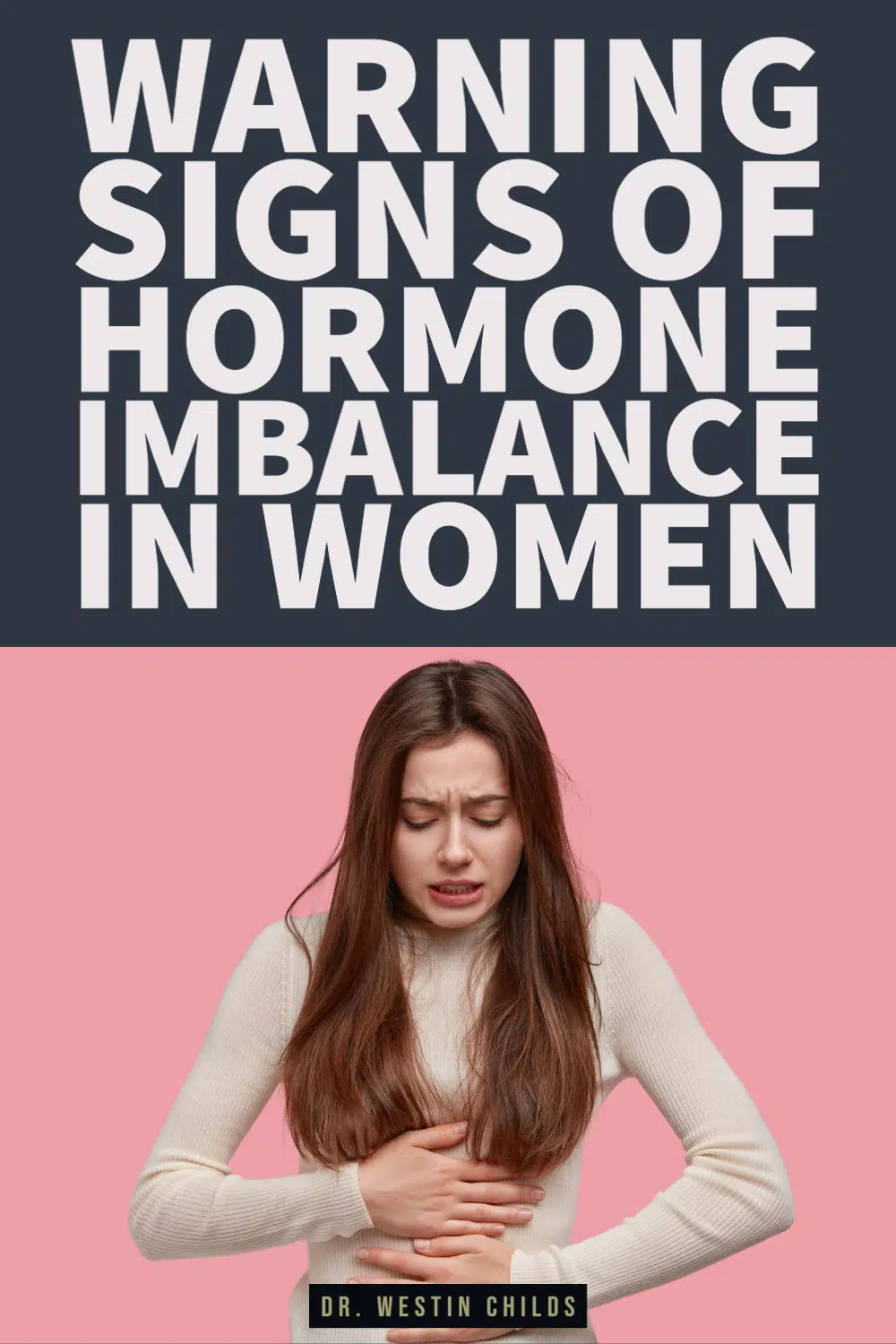
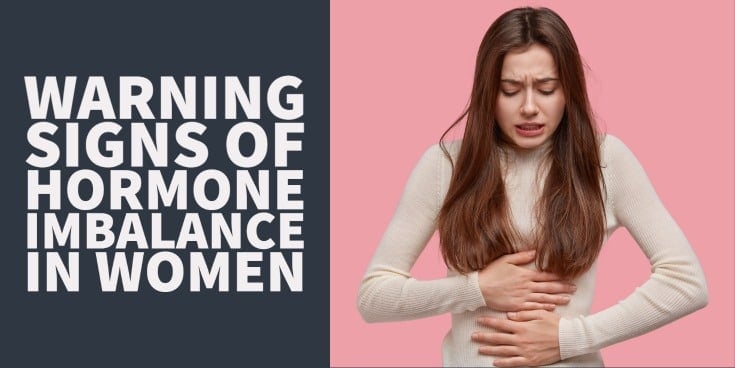

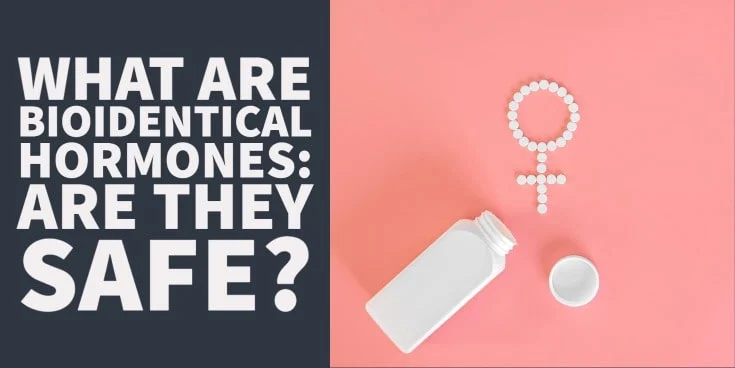


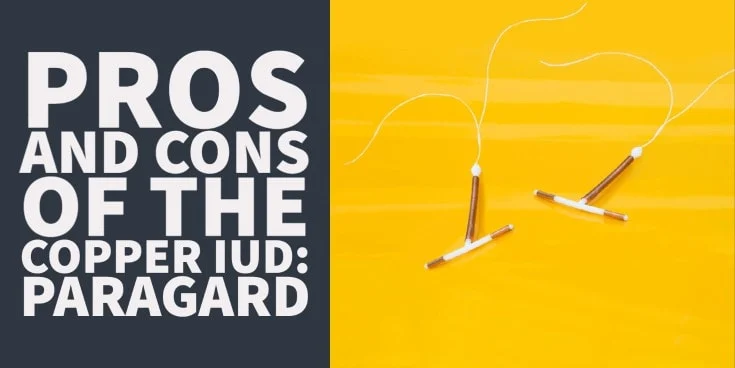
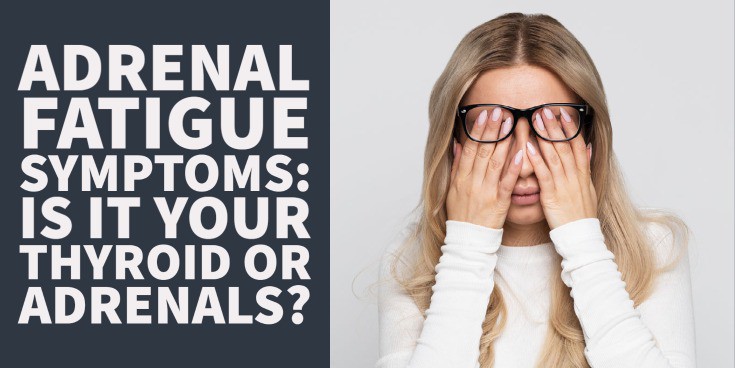
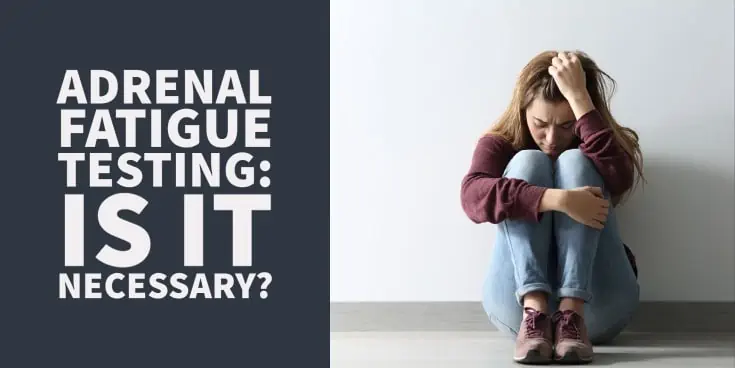

I have all these symptoms and can never find anyone to help me….have tried functional medicine, chiropractic, naturopath and regular doctors….there is a bio identical doctor here that is insanely expensive. The other functional medicine doctors are also too expensive. How can I get some help? I wish it wasn’t so hard. I have been saying for 25 years that this was my problem and the only help I was offered was birth control or anti depressants, which I cannot take.
Hi Susie,
Unfortunately, the best doctors for treating these issues are also the ones that tend to accept only cash. You can sometimes find a good doctor that takes insurance but they are pretty rare. I would check out this article for more help on how to find the right type of doctor: https://www.restartmed.com/how-to-find-a-doctor-to-treat-your-thyroid/
hi doctor, I don’t know what to take from your supplements. I am border line Hashimitos, i have insomnia, hair loss that comes off and on, dry skin, gum issues that don’t go away even if I do deep cleaning with the dentist every 3 months, no sex drive and painful intercourse, brain fog ad memory issues. cold hand and feet. digestive issues, Hpylori. So what supplemts i have to use.I purchased the T3 t4 and the hair and nail supplemts. my hair was getting better. I am trying to order again but thought i might check with you first.
Hi Roubinaz,
Please see my most recent comment to you with some suggestions 🙂
Hi doctor, I have used your supplements the T3 T4 and hair and nail before. it actually helped me with some of my symptoms. I recently stopped it since i was treating my digestive issues. my hair loss is back, I have insomnia, Gut issues, H Pylori, Cold hand and feet, dry skin, no sex drive and very painful intercourse, having mood swings and memory issues and brain fog. Which supplement will work belter for me.
Thank you
Hi Roubinaz,
These would be best:
https://www.restartmed.com/product/thyroid-glandular-plus/
https://www.restartmed.com/product/thyroid-hair-regrowth-complex/
https://www.restartmed.com/product/thyroid-daily-essentials-thyroid-multivitamin/
Hello Doctor,
I’m interested in your product, I’m 67-year-old women who still have the energy to walk, I gained over ten years about 10 pounds. I try so hard to eat, exercise, and good sleep I’m so grateful that I can sleep.
I have had thyroid issues since 2007, presently on Levothyroxine only. Having issues with blood pressure, and bone health in Osteoporosis. Never had BP issues but it’s creeping up there. How can you help?
Hi Robin,
I’m not seeing patients right now but if you have any questions about my supplements I would be more than happy to help answer those! The best I can do is point you to articles that I have written on various subjects as a reference.
How do you determine which symptoms are hypothyroid versus menopause? I have been try to optimize both for the last three years and after trying many thyroid meds while trying to get my numbers good on Biest I am nowhere closer to feeling decent again. Is it better to figure out one before the other? How do you do that when the symptoms are so similar?
Hi Dr Childs,
Is it possible to sort hormone imbalance with a mirena in situ?
I have Hashimoto’s and thyroid, ferritin, folate and optimal; SI EOD B12; take selenium, zinc, magnesium and a B complex (4 months on 2months off).
I cannot lose weight. I have take Saxenda for 6months and weightloss has stalled this past month.
Thanks Sue
Hi Sue,
Unfortunately, it’s very difficult to assess hormone imbalance in those using Mirena.
Hi Doctor Childs,
I was diagnosed years ago with a thyroid issue and later also with adrenal fatigue. I was doing ok on thyroid medication and bio-identical hormone creams for quite some time. Unfortunately my doctor was killed in a car accident and I have never found a replacement for him since. I’m still struggling to be well (this is the worst I’ve ever felt) and I sometimes feel I know more than the doctors I’m seeing. My question: is saliva testing an effective way to test my hormone levels or is a blood test more effective?
Thank you,
Elaine
Hi Elaine,
I recommend against salivary testing for hormone levels because they haven’t been proven to be an effective measurement of hormone status. Blood levels are the best way to go right now.
Dr. Childs:
I want to thank you for advocating for Functional Medicine. With my hypothyroid issues, my Endocrinologist just was not getting to the causes, just medication because my labs always showed “normal”. I just started the path to health with a wonderful FM Dr. After extensive testing, I would’ve never gotten conventionally, most of my issues are related to the Gut, Hormones and others. We are working on these issues now with supplementation and a Gluten, Sugar and Dairy free diet. I feel like I am not crazy and that there is a cause of the way I feel. When she told me, the weight gain and brain fog is not your fault, my life changed in the moment. You are truly doing a great service to those of us who feel we are not being taken seriously with our concerns.
Again, thanks for leading me in the right direction.
Hi Lisa,
Happy to help! Just to be even handed, I would also recommend checking out this article which highlights some of the downsides to functional medicine: https://www.restartmed.com/downsides-to-functional-medicine/
Dr.Childs, can you tell me why too much estrogen causes weight gain, such as in PCOS or adolescent females, and also low levels of estrogen cause weight gain, such as in menopause? And, as a separate question, do labs for estrogen in the blood, take into account xenoestrogens or phytoestrogens in the diet? I have had Hashimoto’s for 1.5 years and it is relatively controlled with T4 and T3, and I was expecting sex hormones to come back as “normal”, but my serum total estrogen is high and progesterone and testosterone are both very low. I’m 42.
Hi Becky,
Yes, you can learn more about why menopause (low estrogen) leads to weight gain here: https://www.restartmed.com/menopause-weight-gain/
High estrogen is easy, it directly stimulates adipose tissue to enlarge which causes weight gain.
What are your thoughts on avoiding ashwagandha if you have a history of high dhea levels, as it can increase testosterone? I was told by a naturopath that I could take ashwagandha indefinitely, but I began to experience worsened anxiety, insomnia, and decreased breast size/libido, which I did not attribute until I had exhausted research on why I was experiencing these sudden symptoms over too long a period of time and the damage was done. The symptoms lessened when I stopped taking the ashwagandha, but I wonder what adaptogens would be better options for people prone to increased dhea levels. Thank you
Hi Rachel,
In many cases, ashwagandha helps those with high testosterone and high DHEA but there are always a few people who react differently and may get worse. If that occurs then you can try another adaptogen or adrenal glandular instead.
45 y.o. female, using a merena for cycle balance and reduced flow. I have followed your articles for years and have used the info as supporting info for my doctor appointments. I have experienced many or most of these symptoms in my trials with Hypothyroidism over the last 10 years. I have had some success with my most recent general practitioner here in Canada as I have asked her for help in balancing my hormones, knowing something has been off for years. Through working with a endocrinologist, gyno specialist and my family doctor she has added a T3 supplement to the T4 Synthroid. I have noticed a reduction in day brain fog, increased labito, less hair loss, better skin, some minor weight loss, but more importantly, a general increase in well-being and happiness. I was really irritable. Just need to get the metabolism boosted now to increase the energy levels for exercise. Any supplement suggestions for that now that I am feeling better.
Hi Natalie,
Pretty much anything in this bundle would be ideal: https://www.restartmed.com/product/weight-loss-bundle/
Dearest dr.Child’s, thank you for your knowledge in such complex subjects. I value everything you say. I am a 50 year old fairly active woman. I’ve had such hormonal problems in about the last 6 years. I recently underwent an adrenalectomy of my left adrenal gland 2 months ago. I had a 3 cm pheochromocytoma. My symptoms have been very terrible, but the most serious was blood pressure spikes, as high as 215/111. The blood pressure spikes are gone now, and even though the doctor tells me my levels are where they r supposed to be, I don’t feel very well. I have been hypothyroid for 20 years. My thyroid also was going hyper throughout the last year. All of the symptoms associated with a phyeochromocytoma I had. The joint pain, hair loss, pressure in my head, and fluid retention is really bad still. Is there anything you might suggest to help me? Is there anyway to get my doctors to understand? I am in Canada, and although we have health care, unfortunately you cannot dictate what you want, you must do what they want. Please, if you could help in any way. I have a family that needs me. Feeling defeated, Tara
Hi Tara,
Unfortunately, it’s usually not a good idea to try and convince your doctor to change how they think about thyroid management. That energy is usually wasted and you’ll still end up with substandard care. It’s far better to seek out a thyroid-literate doctor and travel to get there if necessary. You can learn more about how to do that here: https://www.restartmed.com/how-to-find-a-doctor-to-treat-your-thyroid/
It may be worth traveling to the states to get treatment. When I was practicing I had a couple that would travel from Canada to see me to get treatment.
what are your thought on low estrogen causing heart palpitations? After having my Armour dose increased from 90 to 120, 6 weeks later started getting horrible heart palps. I kept reducing my dose back down to 90 mg which is making my FT3 low to see if it would help. Went to cardiologist and nothing is an issue with my heart. They have gotten better but now im even more hypo! One provider I see suggested that I need more estrogen bc of my age (50) and lab values. She was suggesting weekly estrogen injections but since I get BHRT in the form of pellets, she then wouldn’t elaborate on the injections when I showed interest because she said if I was getting pellets then I could just figure that out. She clearly doesn’t like pellets. Have you had anyone experience this and more estrogen helped. My pellet provider said if I get too much estrogen I could go back into menopause. I’m so confused!
Hi Lori,
It’s possible for estrogen levels to impact the heart so it’s plausible that it could be the cause of your heart palpitations but there are also a lot of other factors that can influence the heart as well. Heart palpitations are not really an issue by themselves, though, which is why I don’t get too worked up over them. Some people are just more sensitive and they feel their heart rate more frequently compared to others. This really isn’t an issue by itself unless it’s also accompanied by problems such as an irregular heart rate and/or a rapid heart rate.
What if I’ve gotten blood clots?
Hi Denise,
Blood clots can be caused by hormone imbalances but there are also many other causes including things like genetics, pregnancy, medications/drugs, etc. If your blood clots are new then your doctor should be looking at potential causes already.
Hi Dr Childs,
Just want to ask you how do you know if your low or high in progesterone or estrogen. I’m so confused . I’ve had menopause for 5 years and don’t want any medication. I was hyperthyroid and lost weight , now I’ve gained 15 pounds and feel I’m in hypothyroid. My adreanals have been threw lots. I want to buy your supplements but don’t understand what I need to buy from you. I have no energy, leaky gut, confusion,anxiety,weight. Please help me in telling me what products I need from you. Thank you very much.
Cindy
Hi Cindy,
It’s best to use a combination of your symptoms along with lab tests for progesterone and estradiol.
I am 52 and had a TAH at age 29 for endometriosis. Age 32 diagnosed with Hashimotos. I take Levothyroxine and have used a hormone patch for several years. Where do I start since I virtually have no hormones? I still have many symptoms.
Hi Tammy,
Did you also have your ovaries removed? The procedure for both is called TAH-BSO but sometimes people just have their uterus removed while keeping their ovaries. If you did keep your ovaries that would change what hormones you’d want to look at. If you aren’t sure then you can start by testing all of your sex hormones in addition to your thyroid. You can learn more about all of these hormones here: https://www.restartmed.com/endocrine-system/
What would be the best form of progesterone to use for the one who has SIFO? oral or topical?
does progesterone affect yeast in any specific way?
thank you
Hi Lina,
Generally, topical progesterone should always be the first form to use. I’m sure there is probably some impact that progesterone will have on SIFO but I haven’t researched that topic deeply enough to comment on it.
Hi Dr. Childs, I was Diagnosed with Lichen Sclerosis 8 years ago when I started menopause. The only thing my gynecologist said to me is that, your going to have this for the rest of your life and prescribed a steroid cream to put on the affected area once a day and put me on some estrogen and progesterone also vagifem. I know that there are certain food that trigger the inflammatory to the skin irritation and itch. Do you think that this is all related to imbalance of hormones if so what steps should I take to look deeper into this problem.
Hi. I have been taking a lot of your supplements. My question is it safe to use a progesterone cream. I have Hashimoto I am taking armor thyroid 60 mg. For about 12 years. Had a hysterectomy. Have hot flashes don’t sleep well Ivan fall asleep but wake up with a flash and can’t go back sleep well. Flashed in the day also and cold. Have to put on a jacket in my house off and on ♀️help
Hi Dr. Child’s, I’ve read so many of your articles and they are extremely helpful. Thank you. I have a Masters in Human Nutrition and Functional Medicine. At one point during this program, your name came up as suggesting optimal ratios between estrogen and progesterone pre-menopause and post. Many of my clients come to me with various tests; sometimes blood more commonly the dried urine Dutch complete. What I’m trying to determine is:
1. what are the optimal ratios between estrone and progesterone after menopause; and
2. as the Dutch test allows for easy monitoring throughout the day (at least for cortisol), is this as reliable as blood and/or would doing so still allow for a reliable ratio calculation?
It’s a bit counterintuitive to me that progesterone would decrease so much more than estrogen yet much of the nutritional and HRT goals are to raise estrogen.
Hopefully you have an article on this and I’m not asking you to write too much. Thank you for whatever you can say to help my understanding.